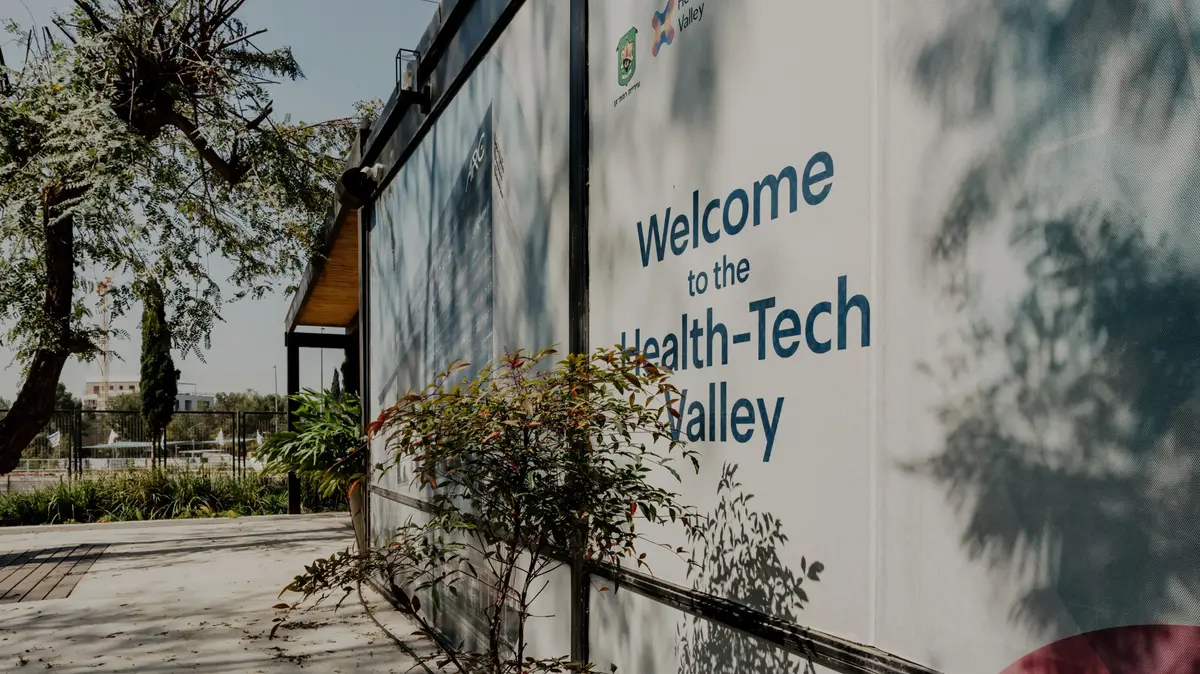The job market in the post-corona era - insights from a high-tech hiring manager
The corona crisis disrupted the labor market in a dramatic way, but some of the changes did not hold water as the experts expected.
Two years later, we returned to reexamine the new models that entered our lives, and how significant they really are to the lives of employees, managers and recruiters
Itamar Goldfeld
07/08/2022
Sunday, 07 August 2022, 08:16 Updated: 09:48
Share on Facebook
Share on WhatsApp
Share on Twitter
Share by email
Share in general
Comments
Comments
The most interesting and professional discourse (Photo: Unsplash)
In the midst of the Corona crisis, it seemed that there was a great opportunity here to break everything we had thought until today about the agenda at work, and what was - will no longer be.
Accordingly, we have seen all kinds of parties, more or less experts, come out with such dramatic statements that the labor market has changed, and that organizations must adapt if they want to find good employees.
We also saw great benefits and unprecedented opportunities such as the slowing down of the office real estate frenzy, which hopefully will also ease the housing crisis in Gush Dan, easing traffic jams and environmental pollution, and most of all, the removal of the geographic restriction as a condition for hiring employees. The latter also allowed employees the freedom to choose where they want to live, and also opened up options for thousands of candidates who until now were not relevant due to the distance. These two things are very significant in terms of the employees' well-being, their general satisfaction, and the degree of sacrifice they have to make to win the job they wanted.
The evolution of the world of work
At the beginning of the corona, when we all moved to work from home, the main challenge was hiring and onboarding.
While recruiting new employees, I struggled with the question of how the new employee, who does not know the organizational culture and does not feel the same feelings of connection that already exist among the older staff, can connect to the work and assimilate into it, without coming to the office every day?
I admit that some of my recruitments at that time were not successful, and those employees were not assimilated into the organization in the long term.
To this day I cannot say that I have cracked the challenge of belonging in the remote work model.
At the same time, today I realize that in terms of the recruitment process, the employee profile I was looking for, and the management of expectations, my entire perspective was through the same narrow prism of the pre-pandemic era.
In other words, I needed a version update.
Today, two and a half years after the big bang, and a year and a half after the normalization of the corona virus from an epidemic that disables life and the economy to another disease that must be learned to live with, many organizations are returning to the familiar patterns of working from the office, with an emphasis on team meetings and forming and signing employee cards.
The job market has not necessarily changed, more options have simply been added to it.
Employee welfare serves the good of the organization
Personally, if in the past I was sure that I was an "office man" and required the staff and human contact around me in order to enjoy, function and manage optimally, today, after experiencing working from home, I can testify that this need has changed.
It's much more important to me to be flexible with my time, not to stand in traffic jams and a little quiet won't hurt either.
If it weren't for the closures and the upheaval of the Corona, I might not have even known that this was an option for me, simply because no one suggested it.
I call the change that is happening now work-life integration - the ability of the organization to integrate into the life of each of the employees in a way that suits him, without compromising on the quality of the work and of course the quality of the relationship between the employees.
To illustrate the idea, let's take a young worker without children, for whom it is important to have a strong social aspect in the workplace.
Such an employee will look for an organization that will provide her with the physical conditions to feel part of a team.
She will be happy to come to the office every morning and meet her friends, go out for a get-together or a weekend abroad and will greatly appreciate the joint activities.
But when the same worker decides to start a family, she may actually prefer to work full time from home, and would like to have the flexibility to do the work on days and hours that are convenient for her.
A reunion weekend abroad, even if it is full of attractions and treats, is not necessarily a celebration for those who suffer from a lack of family time anyway, and sometimes it can be really distressing.
Managers who want to keep their employees for a long time must take these things into account.
This does not mean that all organizations should change, it just means that there are different avenues of investment that should be examined while strategically building the organization.
The question of what kind of employees the organization wants to attract and what values are important to them is of crucial importance, because this is what will determine whether the organization is even able to support the needs of the employee, and does the nature of the work allow this?
readjustment
An organization that chooses to go for a hybrid or full remote work model must invest resources to ensure that this is done in a way that supports the organization and does not detract from it.
The money we will save on offices, flights and formations, we will have to invest in creating defined career paths, relevant monitoring processes for outputs, competitive compensation systems, retention and onboarding measures, sharing and assimilating organizational knowledge and expanding mutual trust between the employee and the organization.
The main challenge is the sense of belonging and commitment to an organization that is essentially virtual.
The more the organization is integrated into the employee's life in a way that suits him, the more the employee will know how to appreciate and invest back in the organization.
Of course the human dimension plays a crucial role, but there are many other ways to implement it that do not involve daily face-to-face meetings.
Today I work in a global company with complete flexibility in managing working hours.
We don't have a time report nor a work card.
I have never met my direct manager.
We have small offices but there is no obligation or need to go to them, unless you want to, and personally it suits me.
I really enjoy my everyday at work and that's what's important.
As long as I am trusted, rewarded, I feel challenged and know that I have a promotion track, I have no reason to rush back to the office.
From a recruiter's point of view, I moved to look for people for whom it is suitable and who see it as an advantage.
In conclusion, I think that the dramatic announcements of a "revolution in the labor market" turned out to be necessarily false.
The corona crisis did not really disrupt the world of employment, it only emphasized the fact that the needs of employees are a dynamic thing.
What suits one employee will not necessarily suit another, and work practices that a year ago supported and encouraged the employee may well expire depending on the stage he is in in life.
The question is who do we, as managers or recruiters, choose to put the emphasis on, the organization or the employee?
Itamar Goldfeld
manages the RTB HOUSE activity in Israel
Marketing and digital
career
Tags
Working from home
Recruitment
Recruitment of personnel
High tech
Corona
employment
The labor market
the employment market










/cloudfront-eu-central-1.images.arcpublishing.com/prisa/2C5HI6YHNFHDLJSBNWHOIAS2AE.jpeg)



